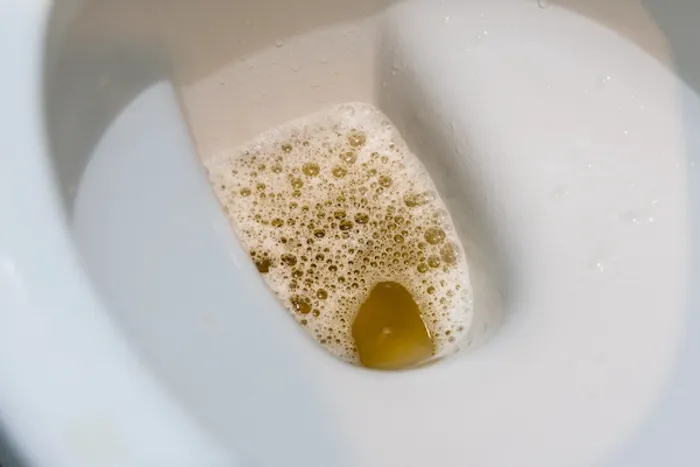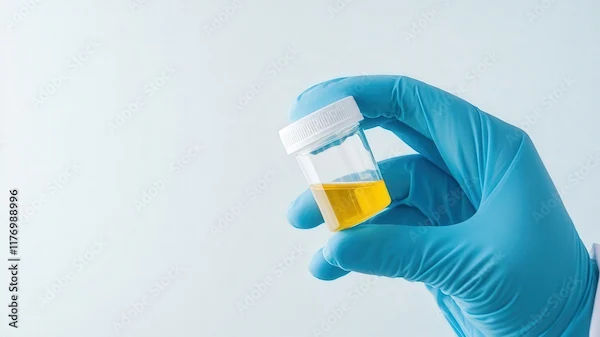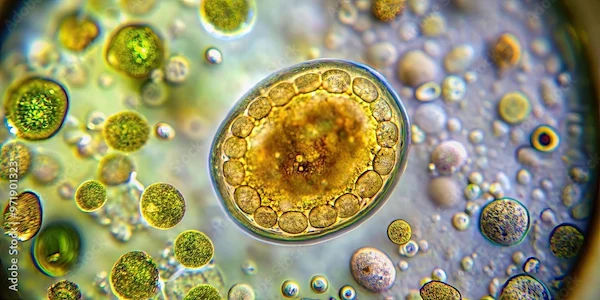Cloudy Urine: Causes, Symptoms, and What It Says About Your Health
Cloudy urine can signal dehydration, UTIs, or other issues. Learn common causes, symptoms, and when to get care—plus tips to support urine health.


Introduction
Noticing that your urine looks cloudy can be surprising—and a little worrying. The good news is that most cloudy urine causes are treatable and often temporary. Still, changes in urine can be a useful signal about your overall urine health, hydration, and whether you might need medical care. This guide explains what cloudy urine can mean, the symptoms to watch for, how doctors figure out the cause, and practical steps you can take to protect your urinary system.
What Does “Cloudy Urine” Look Like?
Cloudy urine (sometimes called turbid urine) looks hazy, milky, or less transparent than usual. It can happen by itself or along with other changes such as a stronger smell, a different colour, or symptoms like burning with urination.
Cloudy Urine Causes: The Most Common Reasons
Many things can make urine look cloudy. Some are harmless; others may need treatment.
Very Common
- Urinary tract infection (UTI): One of the most frequent causes. White blood cells, bacteria, and mucus can make urine cloudy. Other signs include burning or pain with urination, frequent urges to go, lower belly discomfort, and strong odour. Fever or back/flank pain can mean the infection has reached the kidneys and needs prompt care.
- Dehydration or concentrated urine: Not drinking enough fluids makes urine darker and may look less clear. You might also notice a strong smell. If cloudiness improves with better hydration and there are no other symptoms, this is often harmless.
- Vaginal discharge mixing with urine: In people with vaginas, normal discharge—or discharge from a yeast infection or bacterial vaginosis—can make urine appear cloudy when it drips into the toilet stream. If you have itching, irritation, or unusual odour, talk with a clinician.
- Semen in urine: After ejaculation, a small amount of semen can mix with urine and make it look cloudy for a short time. This is usually harmless.
Common Medical Causes
- Kidney stones and crystals: Minerals (such as calcium or uric acid) can form crystals that cloud the urine. Stones often cause severe side or back (flank) pain, nausea, or blood in the urine.
- Sexually transmitted infections (STIs): Gonorrhoea and chlamydia can cause discharge and burning with urination. The discharge can mix with urine and make it cloudy. Testing and treatment are important to prevent complications and transmission.
- Phosphate crystals (phosphaturia): Sometimes, especially after meals or with more alkaline urine, phosphate crystals can make urine look milky. This can be harmless and may come and go.
- Medications and supplements: Some medicines can form crystals in urine or alter its appearance. High-dose supplements are more likely to change colour (for example, B vitamins can turn urine bright yellow) but can occasionally affect clarity. Ask your clinician or pharmacist if you notice changes after starting a new medication.
- Inflammation or infection of the prostate (prostatitis): In men, prostatitis can cause urinary symptoms, pelvic discomfort, and cloudy urine.
Less Common or Needs Evaluation
- Protein in urine (proteinuria): People often describe “foamy” rather than cloudy urine when protein levels are high. Persistent foamy urine can be a sign of kidney disease and should be evaluated, especially if you also have swelling in legs or around the eyes, or high blood pressure.
- Blood cells or pus in urine: Microscopic blood or a higher number of white blood cells (pyuria) can make urine look hazy. Causes range from UTIs to kidney conditions and need medical assessment.
- Chronic conditions that raise UTI risk: Diabetes, pregnancy, catheter use, or a weakened immune system can increase the chance of infections that lead to cloudy urine.
Symptoms That Matter: When Cloudiness Is More Concerning
Pay attention to what comes with the cloudiness:
- Burning or pain when you urinate (dysuria)
- Frequent urination, urgency, or passing small amounts
- Strong urine odour
- Lower abdominal discomfort or pelvic pressure
- Fever, chills, nausea, or vomiting
- Pain in the back or side below the ribs (flank pain)
- Visible blood in urine (pink, red, or cola-coloured)
- New genital discharge, irritation, or pelvic pain
- In pregnancy: any urinary symptoms should prompt a call to your provider
When to See a Doctor?
Seek medical care promptly if you have:
- Fever, flank pain, or vomiting with cloudy urine
- Visible blood in urine
- Symptoms that last more than a day or two or keep coming back
- Pregnancy (UTIs during pregnancy need evaluation and treatment)
- A history of kidney disease, kidney transplant, or urinary catheter use
- A weakened immune system (for example, due to diabetes, cancer therapy, or HIV)
- Severe pain that comes and goes (possible kidney stones)
- Concern for an STI or a new sexual partner with symptoms
How Healthcare Providers Find the Cause
Your clinician will consider your symptoms and medical history and perform a focused examination. Common tests include:
- Urinalysis: Looks for white blood cells, red blood cells, bacteria, protein, crystals, and pH. This is the key first step for most cloudy urine causes.
- Urine culture: Confirms a UTI and identifies the best antibiotic if needed.
- STI testing: Swab or urine tests for infections such as chlamydia and gonorrhoea when symptoms or risk factors are present.
- Pregnancy test: Often checked in people of childbearing potential with urinary symptoms.
- Blood tests: May be used to assess kidney function if there’s concern for kidney involvement.
Imaging: Ultrasound or CT scan if kidney stones or structural problems are suspected.
Consult Top Specialists
Treatment: What Helps Depends on the Cause
Here’s what helps for a cloudy urine:
- Hydration: Drinking enough fluids can clear dehydration-related cloudiness and support urinary tract flushing during mild infections (but hydration alone does not treat a true bacterial UTI).
- UTIs: Typically treated with antibiotics chosen based on local resistance patterns and culture results. Complete the full course as prescribed.
- Kidney stones: Small stones may pass with fluids and pain control. Larger stones may need procedures. Your clinician can advise on prevention if you’re prone to stones.
- STIs: Treated with appropriate antibiotics. It’s important to inform partners, abstain from sex until cleared, and get retested if advised.
- Vaginal infections: Yeast infections and bacterial vaginosis are treated with antifungal or antibiotic medications.
- Medication-related cloudiness: Your clinician may adjust the dose or switch medications if crystals are forming.
- Proteinuria or kidney disease: Management focuses on treating the underlying cause and protecting kidney function; this can include blood pressure control and other targeted therapies.
Everyday Habits to Support Urine Health
Healthy routines can lower your risk of infections and stone formation and help keep urine clear:
- Stay well hydrated: aim for urine that’s pale yellow. Needs vary by person, activity, and weather.
- Don’t hold it: empty your bladder regularly; go when you feel the urge.
- Post-sex habits: urinating after sex may help reduce UTI risk. Use barrier protection to lower STI risk.
- Wipe front to back: helps prevent bacteria from the rectal area reaching the urethra.
- Gentle hygiene: avoid douching or harsh soaps that disrupt the vaginal microbiome.
- Clothing choices: choose breathable underwear and avoid staying in wet workout clothes or swimsuits.
- Manage chronic conditions: keep diabetes, blood pressure, and other conditions well controlled to protect kidney and urine health.
- Nutrition for stone prevention (if you’re prone): adequate dietary calcium, moderate sodium, and individualised guidance from a clinician or dietitian can help prevent certain stones.
Special Situations
- Pregnancy: UTIs are more common in pregnancy and can be serious if not treated. If you notice cloudy urine with any burning, urgency, lower belly pain, fever, or back pain, contact your prenatal provider right away.
- Children: Cloudy urine with fever, irritability, poor feeding, or accidents after being toilet-trained can indicate a UTI. Children with suspected UTIs should be evaluated promptly.
- Older adults: New or worsening confusion is not a reliable sign of UTI by itself. Look for urinary symptoms, fever, or other signs of infection, and seek medical guidance.
Morning-Only Cloudiness: Is It Normal?
Morning urine is usually more concentrated and can look darker and occasionally cloudier. If cloudiness clears after you hydrate and you don’t have pain, fever, or other symptoms, it’s usually not a concern. If it persists or you develop symptoms, get checked.
Cloudy vs Foamy Urine: What’s the Difference?
- Cloudy urine looks hazy or milky, often from cells, crystals, or discharge.
- Foamy urine has persistent bubbles that don’t go away quickly and can be a sign of protein in the urine. If you notice persistent foaminess, especially with swelling or high blood pressure, see a clinician.
Consult Top Specialists
Consult Top Specialists

Dr Karthik Maripeddi
Urologist
13 Years • MBBS MS FMAS MCh URO(OSM)
Hyderguda
Apollo Hospitals Hyderguda, Hyderguda

Dr. Pari M R
Urologist
28 Years • MBBS, MS, Mch (Uro)
Chennai
Apollo Speciality Hospitals OMR, Chennai
(100+ Patients)

Dr Anil Kumar T
Urologist
12 Years • MBBS, MS ( General Surgery ) , MCh (Genito-Urinary Surgery , CMC Vellore) , Fellowship in Minimally Access Surgery , Fellow- ship in Uro-Oncology and Robotic Surgery, UICC Fellowship (Geneva, Switzerland).
Bengaluru
Apollo Hospitals Jayanagar, Bengaluru

Dr. Shekar M G
Urologist
29 Years • MBBS, MS, MCh (Urology), DNB, MRCS, FMAS, FICRS, FICS (Urology), MNAMS, DLS, FCN, FSM, FIMSA, - Fellow (Minimal Access Surgery), Fellow (Robotic Surgery)FIAGES,FALS fellow of advance laparoscopic surgery, FAGE
Chennai
Apollo Speciality Hospitals OMR, Chennai
(100+ Patients)

Dr. Pramod B R
Urologist
10 Years • MBBS, MS, MRCS, MCh
Bengaluru
Apollo Hospitals Jayanagar, Bengaluru
(50+ Patients)
Consult Top Specialists

Dr Karthik Maripeddi
Urologist
13 Years • MBBS MS FMAS MCh URO(OSM)
Hyderguda
Apollo Hospitals Hyderguda, Hyderguda

Dr. Pari M R
Urologist
28 Years • MBBS, MS, Mch (Uro)
Chennai
Apollo Speciality Hospitals OMR, Chennai
(100+ Patients)

Dr Anil Kumar T
Urologist
12 Years • MBBS, MS ( General Surgery ) , MCh (Genito-Urinary Surgery , CMC Vellore) , Fellowship in Minimally Access Surgery , Fellow- ship in Uro-Oncology and Robotic Surgery, UICC Fellowship (Geneva, Switzerland).
Bengaluru
Apollo Hospitals Jayanagar, Bengaluru

Dr. Shekar M G
Urologist
29 Years • MBBS, MS, MCh (Urology), DNB, MRCS, FMAS, FICRS, FICS (Urology), MNAMS, DLS, FCN, FSM, FIMSA, - Fellow (Minimal Access Surgery), Fellow (Robotic Surgery)FIAGES,FALS fellow of advance laparoscopic surgery, FAGE
Chennai
Apollo Speciality Hospitals OMR, Chennai
(100+ Patients)

Dr. Pramod B R
Urologist
10 Years • MBBS, MS, MRCS, MCh
Bengaluru
Apollo Hospitals Jayanagar, Bengaluru
(50+ Patients)
More articles from Urine Infection
Frequently Asked Questions
Is cloudy urine always a UTI?
No. UTIs are a common cause, but dehydration, vaginal discharge, semen, crystals from kidney stones, certain medications, and other conditions can also make urine look cloudy.
Can dehydration cause cloudy urine?
Yes. Concentrated urine from not drinking enough fluids can appear darker and sometimes look less clear. If cloudiness improves with hydration and you have no other symptoms, it’s often benign.
What should I do if my urine is cloudy and smells bad?
Strong odour plus cloudiness can occur with UTIs, dehydration, or after certain foods (like asparagus). If odour and cloudiness persist, or you have burning, urgency, fever, or flank pain, contact a healthcare professional.
Do vitamins or medications make urine cloudy?
Some medicines can crystallise in urine and affect clarity. High-dose supplements more often change colour rather than clarity, but changes can occur. If cloudiness starts after a new medication or supplement, ask your clinician or pharmacist.
How much water should I drink for healthy urine?
There’s no one-size-fits-all amount. A practical guide is to drink enough fluids so your urine stays pale yellow. Needs vary with activity, climate, and health conditions. Ask your clinician for personalised advice if you have kidney or heart issues.




